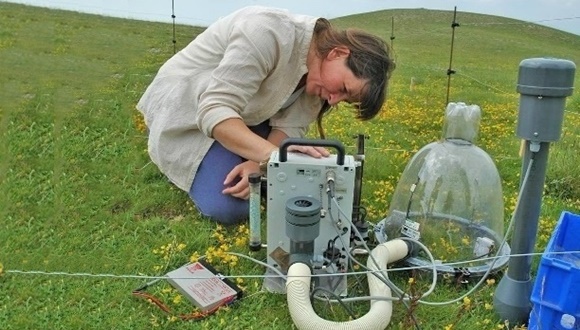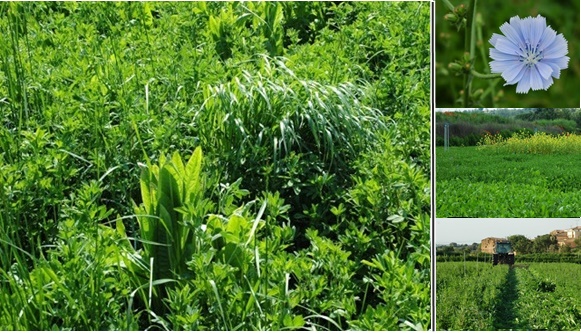Àngela Ribas and the mystique of knowledge
When Àngela Ribas was asked as a child what she would do when she grew up, the answer was that she wanted to go to university. An attraction that she describes as almost mystical, which connects with the attraction for knowledge and discovery, that still maintains intact nowadays.
As she says, she has the privilege of enjoying her work and living it as a hobby rather than an occupation. Stepping foot for the first time in the Faculty of Biology at the University of Barcelona made her feel "on cloud nine" and was the beginning of a fascination, with its ups and downs. Her journey includes an internship in the Department of Zoology at the University of Barcelona, years of contracts linked to projects, multiple collaborations, teaching, a PhD, a Beatriu de Pinós grant and, finally, a permanent teaching position at the Ecology Unit (BABVE) of the Autonomous University of Barcelona in 2018, just before an unexpected second motherhood.
"I've never taken it as a job, I have a great time working", she says. "However, I don't want to lose sight of the fact that life is more than just work: I care about my friends and I like to do a lot of things that add up. This includes my partner and my two gifts, which are our daughters".
"Now I would take my bags and go abroad for a period. Before I retire, I'm sure I propose it to my partner and do a stay at an impressive university, just for the luxury of going"
Keeping the context in mind has come at a price and with some reward. "I never took the leap abroad, although it would have helped me", reflects without too much regret. "The other pieces of life beyond work have always been crucial. And the uncertainty that comes with research didn't give me the push to go abroad", she recalls. And admits that the possibility of a stay abroad is an option that she is clearly contemplating in a few years' time, when her daughters, aged 8 and 2, will have come further along the road. "Now I would pack my bags and go away for a period. But I have always taken into account that profession is not something isolated. It’s not the time: I don't want to drag my daughters with me. In a few years I might be old... but before I retire I'm sure I'll propose to my partner and stay at one of these impressive universities, just for the luxury of going". The fascination for knowledge, again.

New perspectives to ask questions
Her field of work deals with the effects and mitigation of climate change on the soil-plant relationship. She has developed it in collaboration with the Global Ecology Unit, directed by CREAF researcher Josep Peñuelas (who supervised his thesis together with Iolanda Filella) and also with Teresa Sebastià of the UdL-CTFC. Not surprisingly, she points out that "doing research we have to continually explore collaborations with different professionals to learn new visions and perspectives, new concerns, more questions".
She confesses that she is very interested in basic science but, at the same time, she does not shy away from responsibilities and gets involved in applied science. She is currently collaborating with TEAGASC (The Agriculture and Food Development Authority, Ireland), with the Legacynet network on agronomic systems. At the beginning of June, thanks to the recent award of the SUSFORAGE project (PRIMA 2020 call for proposals), she will be working on the study of soil processes that link sown diversity with the maintenance of soil fertility in Mediterranean agro-ecosystems, which are particularly vulnerable to climate change.

Angela has recently been involved in a line of research on the role of Denitrification as the most important sink of Nr in European Soil Ecosystems (D-NESS), in which CREAF associate researcher Stefania Mattana is participating, in collaboration with the ICOS network, the PLECO group (University of Antwerp, Belgium) and the Global Ecology Unit of CREAF.
From genetics to biotechnological nature
Her interest in nature connects her to ecology, although she confesses an original attraction. "I really like genetics but I found it too intrusive: the ability to manipulate DNA, the fundamental key to life, made me a little dizzy”. Years later, she taught plant physiology, which is close to biotechnology, on the Human Biology degree at Pompeu Fabra University, and realised that she was right not to have gone into this field. "This type of research is incredible because it implements key knowledge about the mystique of life, but it generates capacities that I prefer to look at a little further away".
"I am confident that as a species we will be able to readjust to climate change. But the price will be high, up to the limits close to completely transforming natural systems as we know them. I confess that I feel catastrophic and that sometimes I imagine a society based on a biotechnological nature of islands in an arid matrix, of desert landscapes"
When asked for a diagnosis of climate change (the basis of her field of study), she pauses for a moment to say she is confident we will be able to readapt as a species. "However, the price will be high, to the point of completely transforming natural systems as we know them," she ventures. "Fortunately we don't yet know the dynamics or the system to know for sure where we are going. But I must confess that I feel catastrophic and that I sometimes imagine my daughters being old and living in a society based on a biotechnological nature of islands in an arid matrix of desert landscapes. Perhaps I have seen too many science fiction films? I hope so. In any case, there's no turning back".
Opening doors and adding up
Àngela Ribas' career is dotted with constant overcoming. And also of situations that go against the grain. But, above all, it’s a story of tenacity, of firmly believing in one's own decisions, of being clear about where one wants to go and the direction to take. And it seems that she has achieved this by working hard, but tiptoeing and without making too much noise. "I've always been interested in opening doors, but without closing any behind me", she explains, as she reviews how she managed to obtain the prized stable place at the university. "Nobody expected it, it happened against all odds... I wasn't anybody's candidate, I guess because I've never had a very competitive profile," she explains, and ends by acknowledging that "in the end it worked out well", having worked hard.
She is aware that in research a more publication-oriented professional profile is more common than her own. "I like to do things well and with a good level of quality, and it seems that it should be enough. But it doesn't work like that". She goes on to explain why she believes research is essential: "We work with public funding and we must provide results and solutions. We should not stand out as people; answers should stand out. After all, I recognise we have an absolutely privileged job".

"We work with public funding and we must provide results to create solutions, we must not stand out as people. Responses should be highlighted. After all, we have a privileged job"
ÀNGELA RIBAS, researcher of CREAF.
She recalls the time when she used to go climbing and mountain trekking with CREAF colleagues, a contact she has always sought and which, with young daughters, is not easy now. And she looks back on how pleasant it is to walk in the rain, the direct contact with the water... as long as there is a shelter nearby. "It's happened to me when I'm walking, it starts to rain and I click into peace and quiet".
Studying is the thread that weaves her life and she assures she will continue to study when she retires. This is where the life of a scientist who has the determination and perseverance of strong people takes meaning, filtered by great discretion and immense sensitivity.
This action is part of the Severo Ochoa “ULandscape” funded in 2019 by the Agencia Estatal de Investigación of the Spanish Ministry of Science and Innovation to support Research Centres of Excellence.







